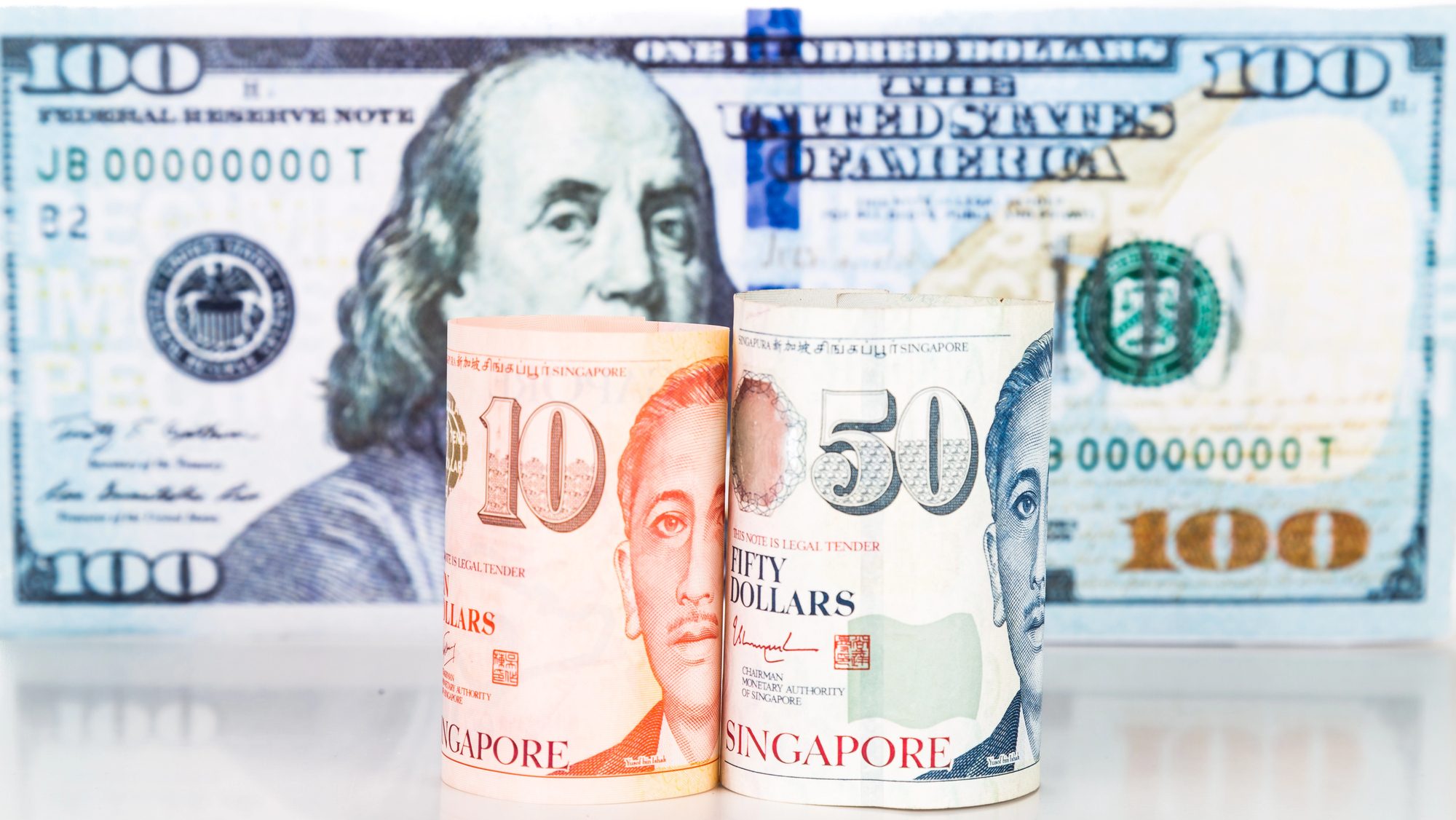SINGAPORE: The Singapore dollar, Malaysian ringgit and Thailand’s baht fell sharply today, leading to declines among Asian currencies as the US dollar strengthened amid bets for Donald Trump to win the US presidential election, Malay Mail reports.
The Singapore dollar slid 1.6 per cent, reaching a three-month low and marking its worst single-day drop since November 2011.
The Malaysian ringgit, Southeast Asia’s top-performing currency this year, also saw a 1.3 per cent drop to its lowest level since mid-August.
A Reuters poll indicated that Bank Negara Malaysia (BNM) will likely keep its key interest rate steady at 3.00 per cent. Earlier this week, BNM stated it is ready to address any excessive volatility in the ringgit.
Thailand’s baht also declined, falling 1.3 per cent to a two-month low. South Korea’s won joined the downward trend, dropping 1.5 per cent to its lowest level since mid-April.
Meanwhile, the Indonesian rupiah dropped 0.8 per cent, reaching a near three-month low.
An official mentioned that Indonesia’s central bank is also ready to stabilise the rupiah, potentially through interventions to address any excessive volatility.
Ken Cheung Kin Tai, chief Asian FX strategist at Mizuho Bank, explained that “regional investors are particularly worried about the impact from tariffs because most Asian economies rely on trade growth.”
According to MUFG analysts, the South Korean won, Singapore dollar, Malaysian ringgit, and Thai baht could face greater challenges with Mr Trump’s win due to their reliance on exports and their exposure to any slowdown in China’s economy.
The yuan and Mexican peso are considered especially vulnerable to a stronger dollar and higher tariffs under Mr Trump’s policies.
The peso fell to 20.7080 against the dollar, its lowest level since August 2022.
Across the region, stock markets showed mixed results: Seoul’s market was down 1 per cent, while shares in Taipei rose 1 per cent and Kuala Lumpur gained 0.4 per cent.
On Wednesday, The New York Times reported that Donald J. Trump was elected as the 47th president, marking his comeback after losing to Joseph R. Biden Jr. four years ago.
His win was confirmed around 5:30 am Eastern time when he secured Wisconsin, a battleground state, bringing him past 270 electoral votes.
Malay Mail reported that analysts see Mr Trump’s proposed tariffs and immigration policies as likely to increase inflation, which could raise bond yields and the dollar, putting pressure on trading partners’ currencies.
The dollar index, which measures the greenback against six major currencies, rose 1.42 per cent.
US Treasury yields also hit multi-month highs, driven by early election returns showing Mr Trump leading Democrat Kamala Harris, especially in states with a strong Republican lean.
With US President Trump’s win confirmed, the focus shifts to how his policies will impact Asian markets. Will regional currencies continue to struggle, or will market sentiment change in the coming weeks? /TISG
Read also: Malaysian ringgit may strengthen if Kamala Harris wins US election, analysts say
Featured image by Depositphotos (for illustration purposes only)

